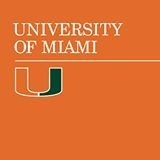Request Demo
Last update 08 May 2025
Selenium deficiency
Last update 08 May 2025
Basic Info
Synonyms SELENIUM DEFICIENCY, Se levels low, Se++ low + [14] |
Introduction- |
Related
1
Drugs associated with Selenium deficiencyTarget- |
Mechanism- |
Active Org. |
Originator Org. |
Active Indication |
Inactive Indication- |
Drug Highest PhaseApproved |
First Approval Ctry. / Loc. Japan |
First Approval Date26 Mar 2019 |
43
Clinical Trials associated with Selenium deficiencyNCT06614920
Addressing Food-Insecurity: Plant-Based Food Prescription Program to Improve Health Food Access
Reduce food insecurity by improving plant-based health food consumption, access, health and nutrition literacy and the health of the food-insecure families we serve.
Start Date09 Jan 2025 |
Sponsor / Collaborator  University of Miami University of Miami [+1] |
TCTR20250214001
Effectiveness of Selenium Supplement Combined with Exercise on Ankle Brachial Index and Bone Mineral Density
Start Date05 Sep 2024 |
Sponsor / Collaborator- |
NCT06293846
BeFit Toolbox Collaboration: Building Empowerment Through Fitness
This project will identify the causative behavioral factors in low-income African American women leading to sedentarism, a major source of morbidity in HABD communities. Working with our partner, WUCN, we will engage with women in HABD housing to develop and (later) deliver a physical activity education program (BeFit) customized for this population.
Start Date15 Mar 2024 |
Sponsor / Collaborator |
100 Clinical Results associated with Selenium deficiency
Login to view more data
100 Translational Medicine associated with Selenium deficiency
Login to view more data
0 Patents (Medical) associated with Selenium deficiency
Login to view more data
2,577
Literatures (Medical) associated with Selenium deficiency01 Dec 2025·Journal of Clinical Immunology
Pulmonary Aspergillosis and Low HIES Score in a Family with STAT3 N-Terminal Domain Mutation
Article
Author: Casanova, Jean-Laurent ; Saarela, Janna ; Hautala, Timo ; Glumoff, Virpi ; Kuismin, Outi ; Jartti, Airi ; Varjosalo, Markku ; Chen, Zhi ; Keskitalo, Salla ; Tiitto, Leena ; Pikkarainen, Keela ; Yannopoulos, Fredrik ; Lima de Souza, Suiane ; Asano, Takaki ; Seppänen, Mikko R J ; Lappi-Blanco, Elisa ; Kaustio, Meri ; Boisson, Bertrand ; Martelius, Timi
01 Jun 2025·Food Chemistry
Bioavailability of selenium and the influence of trace elements in crops grown in selenium-rich areas
Article
Author: Luo, Yingjie ; Zhang, Shixi ; Luo, Kunli ; Han, Yangchun ; Hao, Litao
01 May 2025·Food Chemistry
Revealing the impact of organic selenium-enriched Lactiplantibacillus plantarum NML21 on yogurt quality through volatile flavor compounds and untargeted metabolomics
Article
Author: Wang, Ruiyun ; Wang, Pengjie ; Li, Yiheng ; Zhang, Weibing ; Zhang, Yixuan ; Wang, Longlin ; Wen, Pengcheng ; Shi, Chengrui ; Liu, Qinqin ; Zhang, Hao
Analysis
Perform a panoramic analysis of this field.
login
or

AI Agents Built for Biopharma Breakthroughs
Accelerate discovery. Empower decisions. Transform outcomes.
Get started for free today!
Accelerate Strategic R&D decision making with Synapse, PatSnap’s AI-powered Connected Innovation Intelligence Platform Built for Life Sciences Professionals.
Start your data trial now!
Synapse data is also accessible to external entities via APIs or data packages. Empower better decisions with the latest in pharmaceutical intelligence.
Bio
Bio Sequences Search & Analysis
Sign up for free
Chemical
Chemical Structures Search & Analysis
Sign up for free


